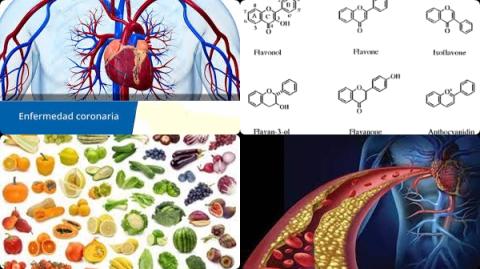
Objectives:
Epidemiological studies have shown that higher intake of flavonoid is inversely associated with coronary heart disease (CHD) risk. However, which flavonoid subclass (including anthocyanins, flavonols) could reduce CHD risk has remained controversial. Therefore, this review article has been conducted.
Do dietary intakes of anthocyanins, proanthocyanidins, flavonols, flavones and isoflavones reduce coronary heart disease?
Study design:
This review article included 19 independent prospective cohort studies with 894,471 participants and 34,707 persons with coronary heart disease.
Results and conclusions:
The investigators found that dietary intakes of anthocyanins significantly reduced risk of coronary heart disease with 10% [RR = 0.90, 95% CI = 0.83 to 0.98].
The investigators found that dietary intakes of proanthocyanidins significantly reduced risk of coronary heart disease with 22% [RR = 0.78, 95% CI = 0.65 to 0.94].
The investigators found that dietary intakes of flavonols significantly reduced risk of coronary heart disease with 12% [RR = 0.88, 95% CI = 0.79 to 0.98].
The investigators found that dietary intakes of flavones significantly reduced risk of coronary heart disease with 6% [RR = 0.94, 95% CI = 0.89 to 0.99].
The investigators found that dietary intakes of isoflavones significantly reduced risk of coronary heart disease with 10% [RR = 0.90, 95% CI = 0.83 to 0.98].
The investigators found in dose-response analysis that increment of 50 mg/d dietary anthocyanins significantly reduced risk of coronary heart disease with 5%.
The investigators found in dose-response analysis that increment of 100 mg/d dietary proanthocyanidins significantly reduced risk of coronary heart disease with 5%.
The investigators found in dose-response analysis that increment of 25 mg/d dietary flavonols significantly reduced risk of coronary heart disease with 5%.
The investigators found in dose-response analysis that increment of 5 mg/d dietary flavones significantly reduced risk of coronary heart disease with 5%.
The investigators found in dose-response analysis that increment of 0.5 mg/d dietary isoflavones significantly reduced risk of coronary heart disease with 5%.
The investigators found sensitivity and subgroup analyses supported these associations.
The investigators concluded that daily dietary intakes of 50mg anthocyanins, 100 mg proanthocyanidins, 25mg flavonols, 5mg flavones or 0.5mg isoflavones reduce coronary heart disease.
Original title:
Flavonoid subclasses and coronary heart disease risk: a meta-analysis of prospective cohort studies by Fan ZK, Wang C, [...], Li D.
Link:
https://pubmed.ncbi.nlm.nih.gov/34470681/
Additional information of El Mondo:
Find more information/studies on flavonoid and cardiovascular disease right here.